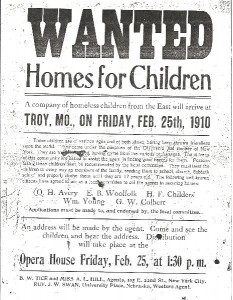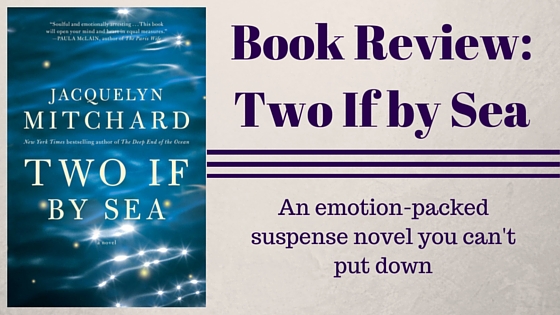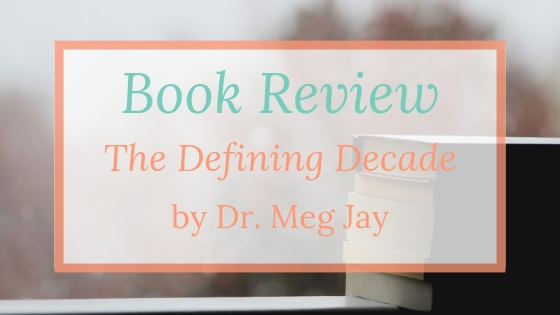Book Review: Orphan Train by Christina Baker Kline
If Orphan Train has been on your to-read list since its release in 2013, consider bumping it up to your must-read-right-now list.
I had been skirting around Christina Baker Kline’s bestselling novel and finally picked it up when I saw she was coming to the Des Moines Public Library’s Authors Visiting in Des Moines (AViD) series.

Every once in a while, a good book comes along and steals your heart in a way that reinforces your love for stories, your compassion for characters and your view of the world. That is what Orphan Train did for me.
The orphan train movement is a well-kept secret of America’s history. From 1854 through 1929, orphan trains transported over 200,000 abandoned children from the East Coast to the Midwest. Children on these trains were advertised to Midwesterners as workers, and adoption was never required.
Although several self-published nonfiction narratives exist on the subject, written by either train riders or descendants, I believe Kline’s decision to write her retelling of the movement as fiction best allowed the story to come through and connect with millions of readers in a way that it might not have done as nonfiction.

Orphan Train interweaves the lives of Molly, a frustrated teenager in foster care, and Vivian, a 91-year-old woman of wealth. The story begins in present-day Maine when Molly, in order to fulfill her community service requirement, is recruited to clean out Vivian’s attic. When Molly’s time with Vivian becomes more of a conversational history lesson rather than required work, she is surprised to learn she has a great deal in common with the old woman.
Vivian relays her unfortunate childhood to Molly. Through flashbacks, the story to is taken back to Depression Era Minnesota, where Vivian is known as Niamh, a given name from her Irish family. After a fire destroys Niamh’s family’s apartment in New York, she is told her father and three siblings have died and her mother is too sick with grief to care for her. Niamh is then taken by the Children’s Aid Society on the orphan train to Minnesota. Kline takes us through her journey of being placed in families where she is seen as a worker–mending clothes and tending to infants–not a 9-year-old girl.
“And so it is that you learn how to pass, if you’re lucky, to look like everyone else, even though you’re broken inside.”
-Orphan Train

In the author’s presentation at the Des Moines Public Library, Kline stated that her intention was to capture the feelings and lives of those who rode the orphan trains. She did this well through Niamh’s first-person point of view. Kline’s writing is so descriptive, clearly painting the picture for the reader to experience the journey with Niamh. We feel for her through the loss of her people, the desire and fear over being picked by a family, and the humiliating way she is treated as a child.
Niamh’s story portrays a strong sense of loss and longing for a home and a childhood. I was left constantly turning the page to see what would happen next.
Writing Orphan Train as fiction allowed Kline to piece together several bits of real stories in a way that best revealed the experiences of these children. Kline noted in her presentation that although it is a fictional piece, many little details came from real stories she had heard while conducting her research.
Her coverage of the movement was exceptional. While the majority of the story is during Niamh’s childhood, Kline takes us through the rest of Niamh’s life, as she goes from Niamh to Dorothy and finally to Vivian, at a good pace. Seeing several stages of Niamh’s life gives the reader a feel for the brutal reality of what children went through and how being a part of the orphan train movement affects them throughout the rest of their lives.
“If I am honest–which is not of course what Mr. Sorenson is asking of me–I will say that I simply need a warm, dry place to live. I want enough food to eat, clothes, and shoes that will protect me from the cold. I want calmness and order. More than anything, I want to feel safe in my bed.”
pg. 187
What it means to have a home is a strong theme throughout the novel, coming through in references to The Wizard of Oz and in the personal belongings that both Molly and Vivian keep with them throughout their journeys. In my own experience reading the book, it made me think how easy it is to take for granted the things we have, such as the roofs over our heads.
Molly’s character shows the present-day system of foster care, connecting to the similar feelings Niamh had of not being wanted. Though Molly’s conditions are far lighter than Niamh’s, being inside of her head opened my eyes to what it’s like to be a child in foster care and, more specifically, a child without the love of her own parents.
While I admire Kline’s descriptive writing and use of the first person point of view, I felt that Niamh’s thoughts were almost too mature for a 9-year-old. Some phrases she used sounded more like her adult self, as Vivian, and I couldn’t imagine a 9-year-old thinking that. Although, I can believe that Niamh is unlike other children. She is forced to grow up and work, to be an adult at a young age. It wouldn’t be surprising that her thoughts become more mature as a result.
Overall, Orphan Train is an emotional and educational page-turner. Character decisions make for great book club discussion (that I am craving! Somebody, please talk to me about this book!). It is one of those books that brought my hand to my heart at the end, making me beg to talk to somebody about it.
Don’t put this book off any longer. Orphan Train can be found at all major bookstores worldwide and on Amazon.
Photo source: SEE PAGE FOR AUTHOR [GFDL, CC BY-SA 4.0-3.0-2.5-2.0-1.0 OR CC BY-SA 3.0], VIA WIKIMEDIA COMMONS






One Comment